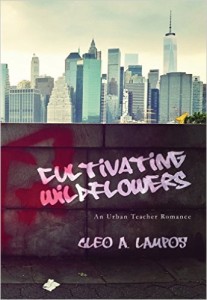Cleo Thoughts
A Salute to the Family Farm
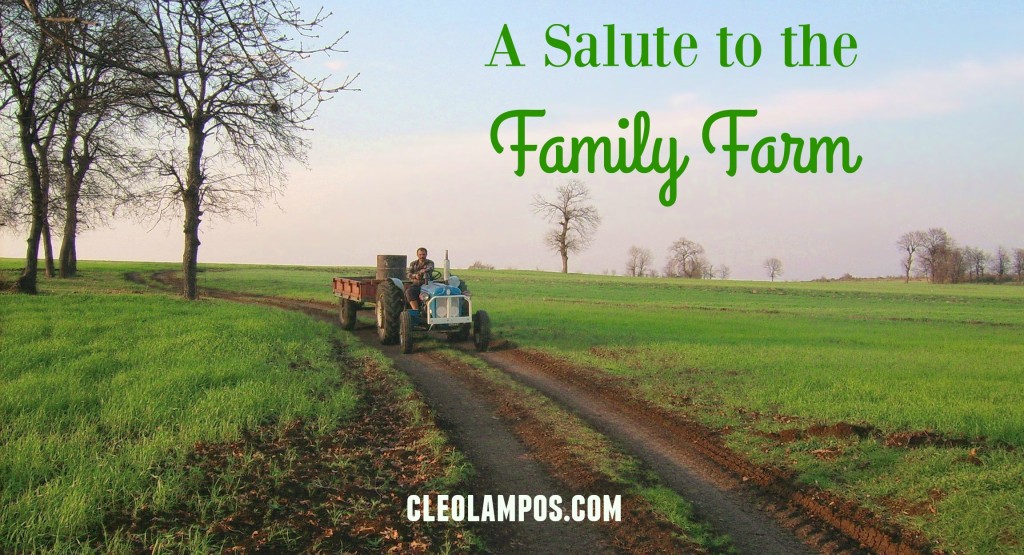 As a child, I lived on an eighty-acre dairy farm in Wisconsin. We slopped pigs, gathered eggs, cleaned/plucked chickens, hung by our knees from the top of the windmill, and birthed calves. Nature and life intertwined as geese migrated overhead and ice storms prevented the school bus from coming. A feeling of satisfaction and harmony prevailed as quarts of homegrown vegetables and fruits stocked up our cellar for winter “sunshine in a jar”. So many wonderful memories from those barefoot years.
As a child, I lived on an eighty-acre dairy farm in Wisconsin. We slopped pigs, gathered eggs, cleaned/plucked chickens, hung by our knees from the top of the windmill, and birthed calves. Nature and life intertwined as geese migrated overhead and ice storms prevented the school bus from coming. A feeling of satisfaction and harmony prevailed as quarts of homegrown vegetables and fruits stocked up our cellar for winter “sunshine in a jar”. So many wonderful memories from those barefoot years.
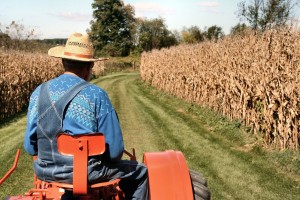 Those days of family farms are disappearing as the average age of the American farmer hits sixty years and megafarms swallow up the family businesses. The rural offspring have seen the bright lights of the city, and followed the glam. The answer to this crisis derives from an unlikely source: the returning combat veterans who suffer from traumatic brain injury or PTSD. This prescription without medication is called horticulture therapy. It is saving soldiers and family farms. That constitutes a “win-win”.
Those days of family farms are disappearing as the average age of the American farmer hits sixty years and megafarms swallow up the family businesses. The rural offspring have seen the bright lights of the city, and followed the glam. The answer to this crisis derives from an unlikely source: the returning combat veterans who suffer from traumatic brain injury or PTSD. This prescription without medication is called horticulture therapy. It is saving soldiers and family farms. That constitutes a “win-win”.
Christopher Brown served three combat deployments in Iraq and Afghanistan before his honorable discharge in 2008. Like many returning vets with PTSD, he experienced difficulty transitioning into the hustle and bustle of urban life. Not wanting to join the ever growing statistics of suicide among vets, Brown sought help from a counselor. “Grow a garden”, the human resources expert suggested.
So Brown bought some seeds and tried.
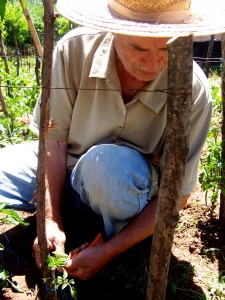 First Brown began with some plants on his balcony, but soon graduated to a raised bed full of organic vegetables. Quickly, he acquired three acres and started to farm with others battling PTSD. “I firmly believe that the act of doing—getting out there and getting dirty—has brought the Growing Veterans project from a winter concept to a viable model in 12 months.” The $60,000 in produce that they planted, grew and harvested attests to the success of the program.
First Brown began with some plants on his balcony, but soon graduated to a raised bed full of organic vegetables. Quickly, he acquired three acres and started to farm with others battling PTSD. “I firmly believe that the act of doing—getting out there and getting dirty—has brought the Growing Veterans project from a winter concept to a viable model in 12 months.” The $60,000 in produce that they planted, grew and harvested attests to the success of the program.
Brown calls it “dirt therapy” and claims a lot of benefits from digging in soil with bare hands. The dirt, the ground, he insists, gives growth and meaning to life. Indeed, horticultural therapy improves cognition as new skills are rearranging the brain. Working their bodies in fresh air provides psychological and physical benefits. Being in a non-threatening environment increases a sense of personal life control. After men complete the Growing Veterans program, many purchase family farms or find employment on large organic enterprises. The old adage, “nature will nurture” proves true for the unseen battles of our bravest. Brown grins with pride as he makes the connection:
With hands in the dirt, the mind is slowly healed.
The work that Christopher Brown has started is being replicated all over the United States among those who work with PTSD victims. Family farms are being rescued by vets who needed rescuing themselves. Horticulture therapy. How simple can life be?
Check out Cleo’s books Cultivating Wildflowers and Miss Bee and the Do Bees.
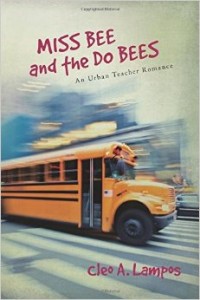 Photo credits: Tractor in the field by Arsel Ozgurdal, man farming by AliBaba 2, man on the tractor by Joe Zlomek
Photo credits: Tractor in the field by Arsel Ozgurdal, man farming by AliBaba 2, man on the tractor by Joe Zlomek

